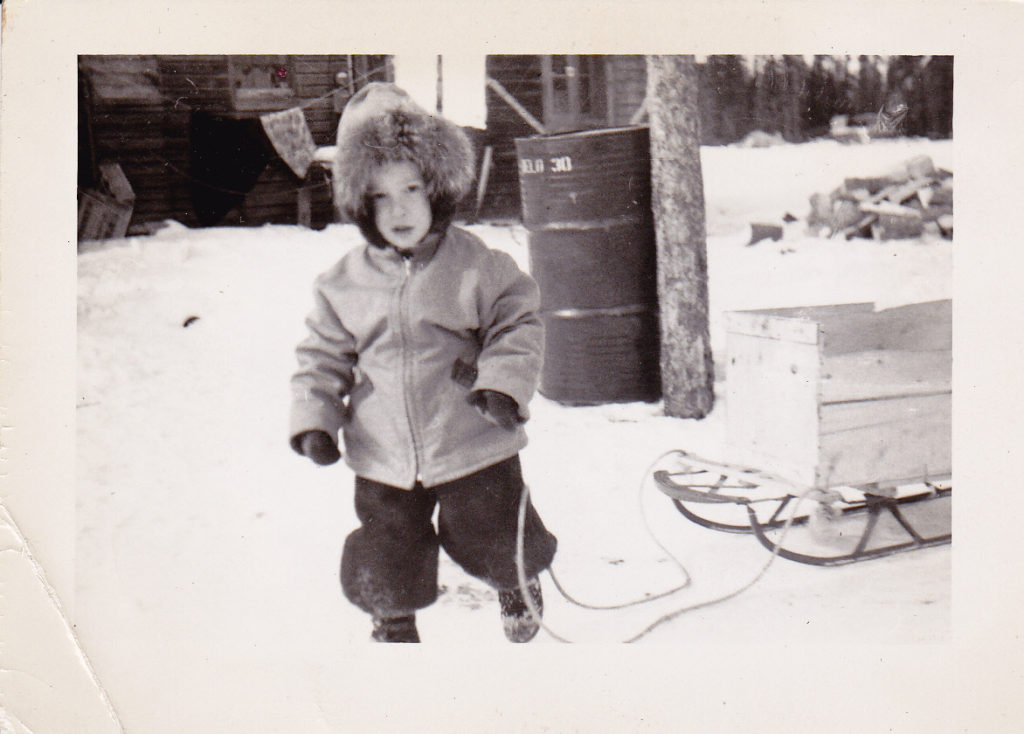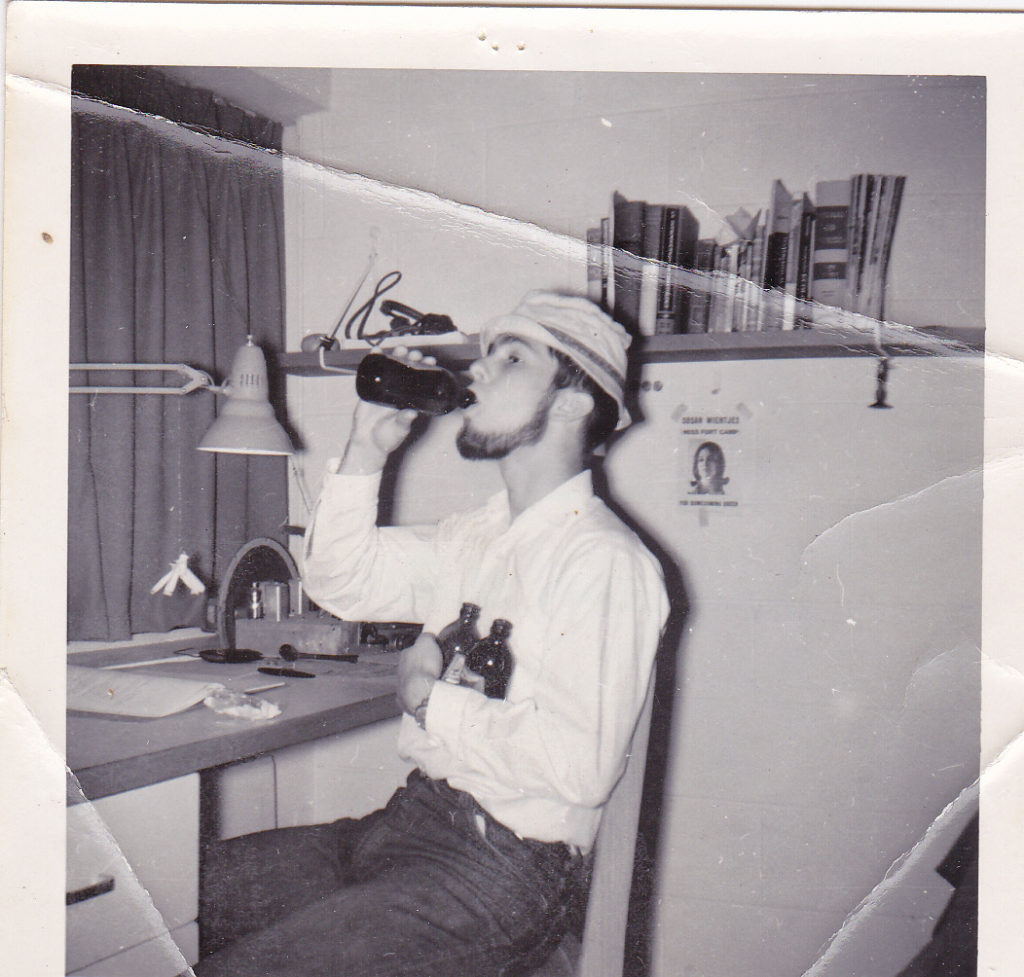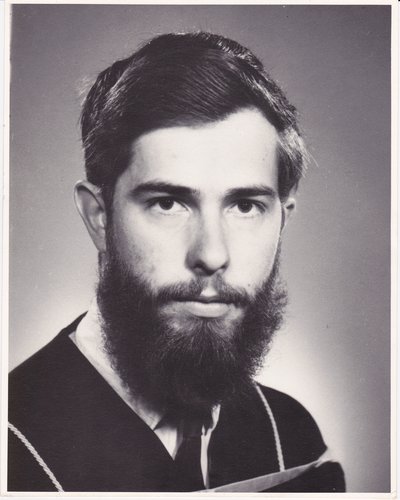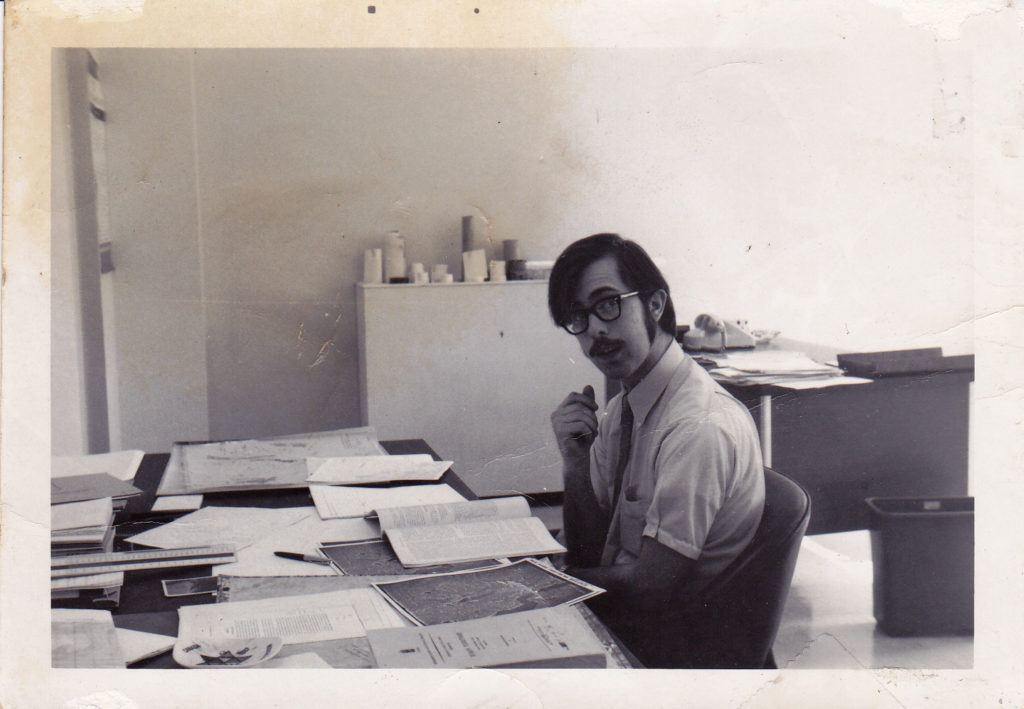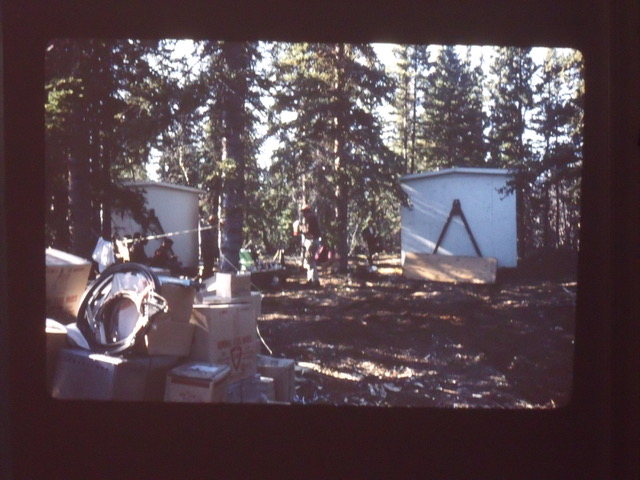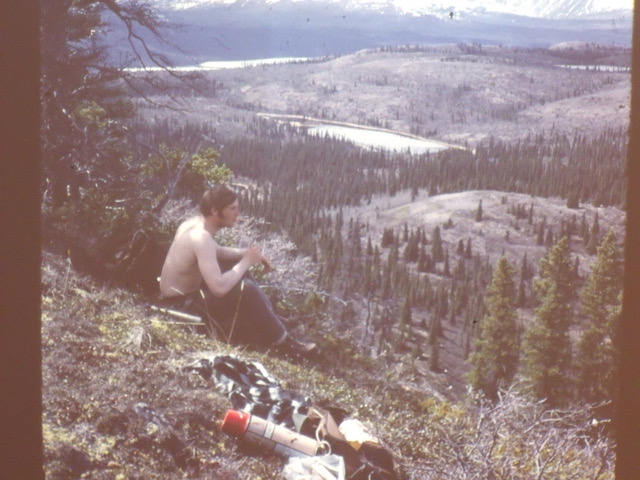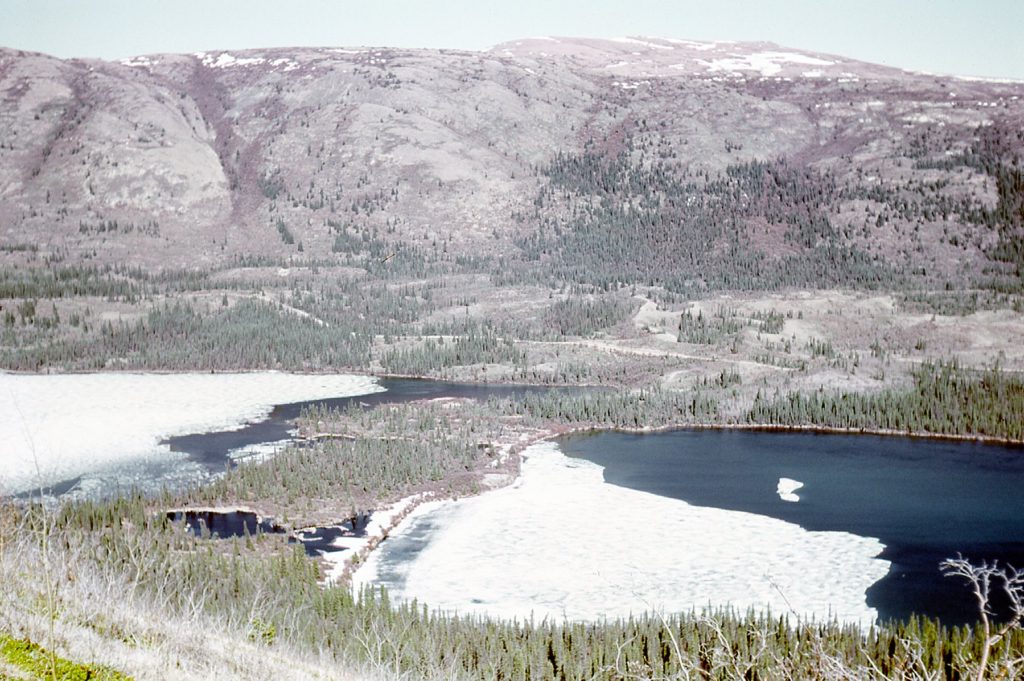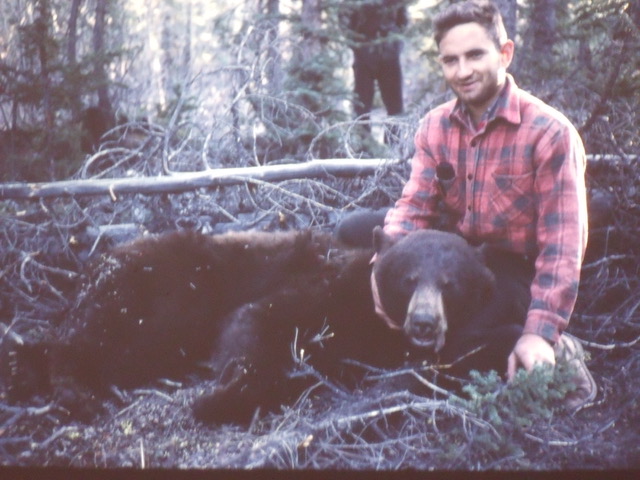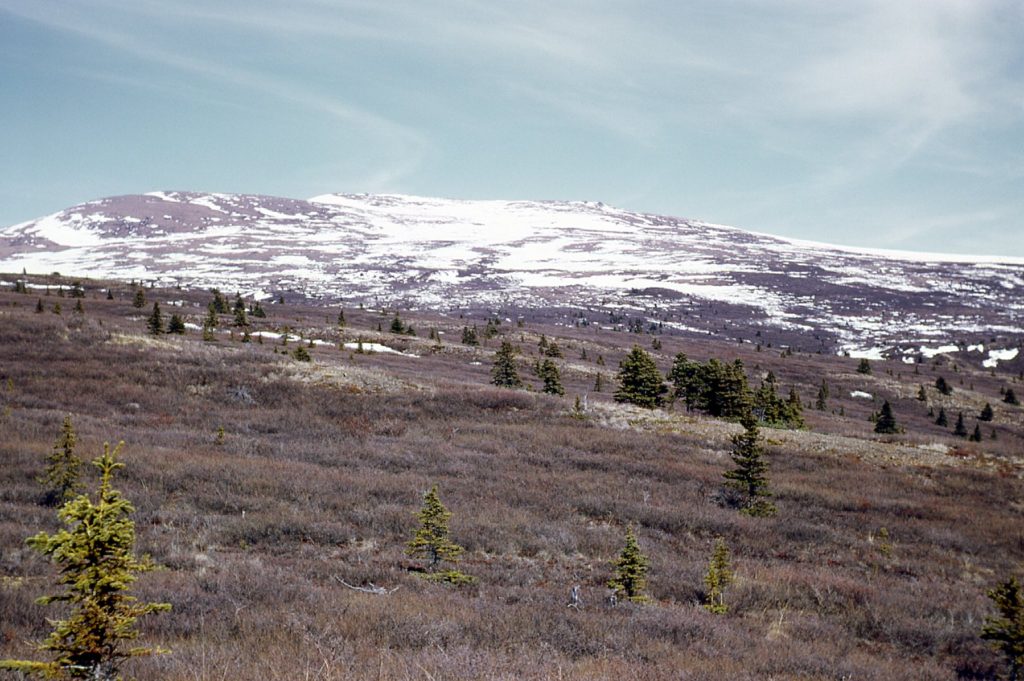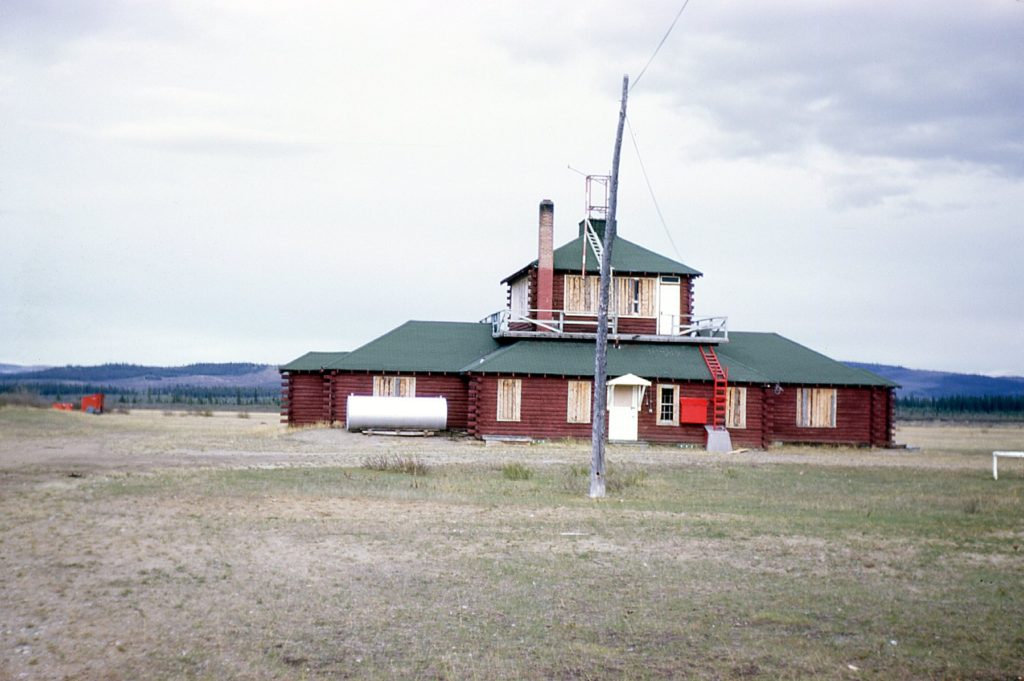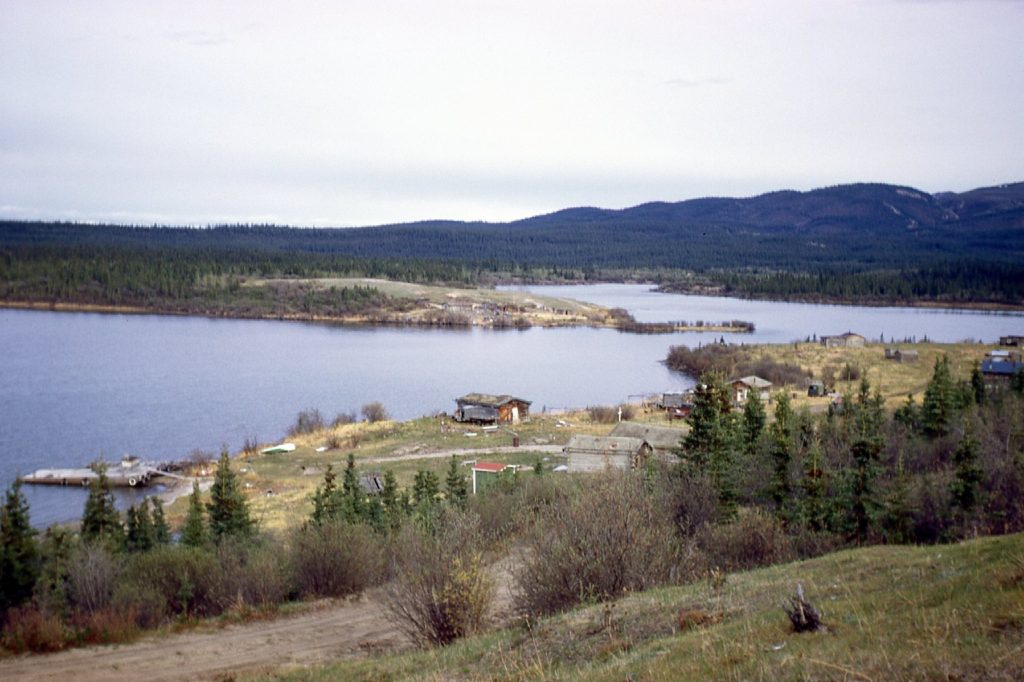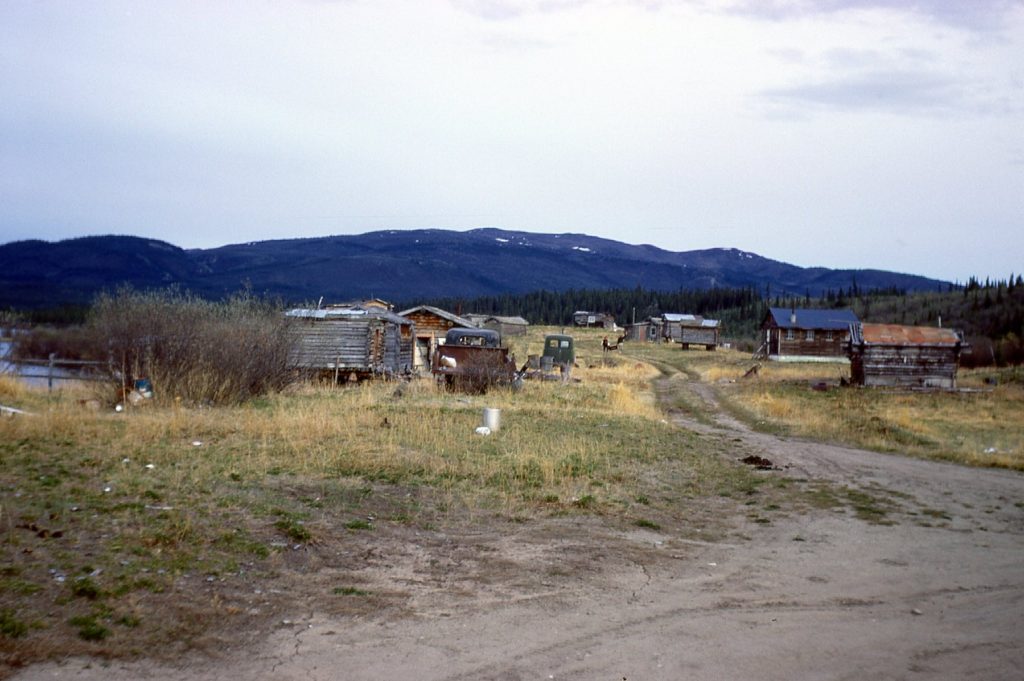I’d like to tell you a story about the Yukon. Now just so my readers in the USA don’t get confused, I’m not talking about the UConn, which is the University of Connecticut. It’s pronounced the same, but there the similarity ends. I’m of course talking about THE Yukon, which is a territory in northern Canada, right next door to Alaska. My involvement with the Yukon starts way back in the year 1949. You see, my father was in the Royal Canadian Air Force after the Second World War and, like all air force personnel everywhere, he got transferred all over the place. As his family, we of course tagged along.
I was born in the town of Clinton, Ontario in eastern Canada. After I turned 2 years old, my father was transferred to the RCAF station in Whitehorse, the capital of the Yukon. Mom and I followed along later, making our way by train to Edmonton, and then by plane to Whitehorse. In those days, that commercial flight was made in a DC-3. Not fancy, but reliable. We spent the next 4 years there, living in married quarters on the base. All of my earliest memories were from that town. Two of my sisters, Lynda and Judy, were born there. Life was pretty idyllic when I was 2 years old and enjoying my first winter in the Yukon. My Dad said the coldest it got in the years we lived there was -57 degrees F.
We lived there long enough that I finished Kindergarten, and in the summer of 1953 we moved down to the balmy climes of Vancouver. So ended my first spell in the Yukon – not a lot to tell about those early childhood years, but nothing traumatic stands out in my mind so I guess that’s a good thing.
The years rolled on by. We stayed in British Columbia for 4 years of my elementary schooling, then 4 years in Montreal. Back to BC for high school, then off to university in Vancouver. By the time I’d put in 5 years at the University of British Columbia in that city, I was ready to graduate. It’s a wonder I did, though, as most of my time was spent doing this, not studying.
Once 1969 rolled around, something strange, yet wonderful, was going on. Geologists were in short supply. At the time, Vancouver was home to over 400 mining exploration companies, and a lot of them wanted geologists. At my school, UBC, our class of geology students about to graduate with a bachelor’s degree was the largest of any university in Canada – there were 20 of us. One large mining company said they’d be willing to hire the entire class, believe it or not. We were in Seventh Heaven, and had our pick of jobs. Companies were calling us, months before graduation, and offering us jobs – we didn’t have to lift a finger. It was outrageous!
In mid-January, a company called Arrow Inter-America called me and asked if I’d come in and talk to them. Sure, why not? They were very nice, and made me an offer I couldn’t refuse. Let’s put things in perspective – that spring, engineers graduating from UBC were hired on at a starting salary of $625 – $650 per month. Arrow offered me the unheard-of salary of $750 per month, plus a bonus of $150 per month, for a total of $900 per month. Up until that point in my life, the most I’d ever earned was $450 per month in the summer of 1968. I thought I’d died and gone to Heaven. I toyed around with a few other offers, but by February 3rd I accepted Arrow’s.
Their offer of a job depended on my graduating successfully with my degree, still some months in the future. It was a well-known fact at the time that no mining company cared about what grades you obtained while getting your degree, only that you passed and actually got your degree. Those in the industry jokingly referred to it as getting your union card. All they cared about was that you had those letters after your name, in my case BSc, for Bachelor of Science. Arrow was taking a chance by hiring me months before my graduation – by making a commitment to me, they lost their chance to hire any of the other graduates in my class. So why should that be a problem? Well, truth be told, I was struggling with one of my courses – Math 202, otherwise known as second-year Calculus. I hated it. It was 2 semesters of hell for me. I had failed every test, every quiz, the midterms, you name it. Without 202, I wouldn’t be allowed to graduate. I arranged a meeting with the young man who taught the class, only a few years older than I was, and explained my situation. He seemed sympathetic, and made me an offer I couldn’t refuse. If I could pull off what would obviously be nothing short of a miracle and get even the barest of a passing grade in the final exam, he’d ignore all the other failing grades I’d received in his class up until that point and give me credit for the course. Wow, that seemed extremely generous, so now I had a real motivation to study my brains out.
Arrow was looking to hire more guys for the crew, so I recommended some of my friends. Joe, from my home town, was offered a job with them on February 17th, but sadly had to turn them down when he learned his Dad had cancer – he had to stay home and help run the family business. It would have been so great to have had him with us, but it was not meant to be.
We needed a cook, arguably the most important job in camp. Our friend Don said he’d be interested, but he’d never cooked anything in his life. I spoke highly of him to my boss, and they agreed to hire him – on the understanding, though, that he’d get up to speed and learn everything he needed to know in a hurry. Don’s mother was a good cook (I’d been a dinner guest at their home several times) and said she’d teach him whatever he needed to know in time for the start of the job. Well, any fears were unfounded – Don turned out to be a terrific cook.
Another friend from UBC was hired – Keith would manage the crew members and make sure the work would get done right and on time – his job was an important one, and would allow me to focus on my work. Mike, another of our close friends, was also hired to be part of the crew. My job would be to do the geology. Time passed. April arrived, and I started to study in earnest for that final exam in math. My room-mate George was an engineering student and one of the smartest guys I ever met – he very patiently tutored me in all my weak areas, of which there were plenty. I wrote my final exam on April 21st. Two days later, I started work in the office for Arrow, still not knowing if I’d passed math or not – they were taking a chance on me, that’s for sure. My math professor told me to call his home phone number, which he’d generously given me, late in the afternoon on April 25th – he’d have our final exams all graded by then. I was so nervous when I placed that call. His wife answered and I introduced myself. She said “Oh, this must be the geologist who passed Math 202 today!!” She sounded very excited to give me the news, but not nearly as excited as I was. Her husband ended up giving me a final grade on the class of 80 out of a possible 150 points, or 53% – that’s all I needed – I had my union card! Here’s a photo of me in my graduation garb.
I had no sooner started work in the office when I learned that Arrow had 4 exploration projects happening that year. Mine was referred to as the Cam Project, and had a budget of $52,000.00, the largest of the 4 – that was quite a lot of money, considering we’d have no helicopter and no drilling. That equates to about $375,000.00 in today’s money. Here’s the only photo of me that survives from those office days before heading into the field. You can see I’ve shaved off my beard to be more presentable.
The next couple of weeks were spent studying the geology of other projects that would be similar to mine. I also put in time familiarizing myself with another of our projects that would be a couple of hundred miles from mine, but also in the Yukon – it had the unlikely name of the Yucca Project, odd because yuccas only grow in hot and dry places.
Mike started work on May 6th, and on the 7th they hired Don officially. On the 14th, seven of us flew north from Vancouver to Whitehorse. It was good to finally be in the Yukon. The evening was spent drinking beer in the Edgewater Hotel pub – for some of the crew, it’d be the last chance for a while.
The next day, the 15th, would go down in history as one of my most embarrassing. Although others on the crew had driven our pick-up trucks the 1,600 miles from Vancouver and were no doubt experts at driving them, I insisted on driving one of them up to our Yucca camp. For some reason, I put the truck off the road twice – we had to use the winch to get us back on track, costing us several hours in the process. After that day, nobody let me drive again – I can’t say I blame them, I must have been a lousy driver. At the camp, we had 2 bunkhouses. They were long and skinny, like trailers, that must have been trucked in earlier. One of our first tasks, though, was to put up a cook tent – that made life a lot easier for that crew’s cook, a young fellow named Kerry.
My time at Yucca camp was temporary – I was only there until enough of winter had passed that I could move over to my own project. Yucca had its own boss, a fellow named Tony Ellis. He wasn’t a geologist, but he had experience in the bush, enough to run a crew. On May the 20th, my boss from the office in Vancouver arrived in camp. Yucca wasn’t isolated, you could drive there – it was beside the road, about 30 miles north of the Alaska Highway. Bud, Tony and I spent a long day walking through the bush looking for claim posts that had been dropped from a chopper in the winter. Bud went back to Whitehorse, and the next day Tony and I staked 4 more claims. A few days later, on the 23rd, Keith and I put in a 12-hour day staking 14 more claims.
That was hard work, using a survey chain in the bush and snow, up hill and down. I remember we saw grizzly bear tracks along the north edge of Hopkins Lake, which really scared us. Do you know how you can tell grizzly bear tracks from black bear tracks? The reason black bears can climb trees is that their claws are retractable like those of a cat. Grizzly bears do not have retractable claws, and as a result they are lousy tree-climbers. When grizzlies walk along the ground, their footprints show obvious claws, while black bears do not.
Along the road where our camp was situated, there was an abandoned electric line strung up on wooden poles, what we called “telephone poles” back in the day. In places, poles were down and the wire was laying on the ground. Keith and I went out one day after our work was done and gathered 1,100 linear feet of this wire, which was very thick – around 1/4 inch thick, or #2 gauge. We figured it would come in handy for things like radio aerials.
On the 26th of May, I flew with my boss, Bud, in a Jet Ranger helicopter. They picked me up at Yucca and we flew west to the site of where my camp would be located. It looked great, but it was way out there. There was no road, no airstrip, just bush. We’d have to build our own camp, and it’d be a lot of hard work, but I was excited. We then spent the rest of the day flying to Burwash and finally Carmacks, looking at a few other properties. By the time the day was done, we’d flown over 400 miles. Arriving back at Yucca, we discovered they’d shot a black bear that wouldn’t leave and had become a hazard.
May was almost over. We staked a few more claims, and then I started geological mapping of the mining property. I really got into that work with a passion. I asked Tony, the Yucca boss, to help me with this, but within a few days I realized he was out of his element with this type of work – he didn’t do well with it at all. I’m sure he was a good camp manager, but a geologist – not so much. From that point on, I carried on doing the mapping by myself and left him to his own devices.
Near the end of the month, I went out one day and climbed to the summit of Peak 5440 to the east of camp, a climb of about 2,500 feet. It was a colder day than usual and my toes became frost-nipped. It took until the end of the day for them to finally thaw out back in camp. Even though it was almost June, it could still get plenty cold there.
Our camp was along the road which went up to Old Aishihik. This village was 84 miles north of the Alaska Highway. During World War II, they built a military airfield there as part of what was called the Northwest Staging Route. It was operated until 1968, and when the airstrip was abandoned, the village was also abandoned. We drove up there on June 3rd, and as we approached the village we saw something in the middle of the road ahead of us. It was a pile of horse poop – a big pile. It was as if horses were using the same spot to poop there over and over. We found a couple more big piles nearby. We soon arrived at the airstrip, a good one about 6,000 feet long. Sitting there was what was known as the world’s only log control tower.
A few miles beyond the runway was the village itself. It was completely abandoned. The houses were unlocked, so we poked around a bit. It was eerie, as if everyone had suddenly left. There were still family pictures hanging on the walls. I was struck by how very Asian-looking were the faces staring back at us. Their ancestors would have been among the earliest to travel across the Bering land bridge about 20,000 years ago.
The village sat at the very north end of Aishihik Lake which was about 35 miles long.
The six of us actually spent a couple of hours at the village, it was such a fascinating place. The area of the village was the traditional home of the Aishihik First Nation band. We didn’t return to camp until very late, but it stays light most of the night here at this time of year anyway.
This story continues, so look for The Yukon – Part 2 coming soon.

